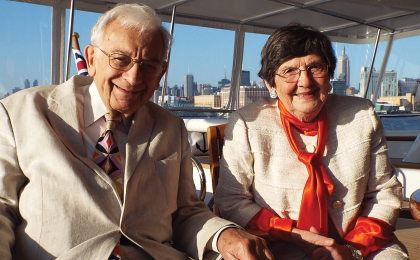The ASCO Annual Meeting in June confirmed—and expanded—the excitement of the oncology community about molecular medicine and its future. The complex molecular pathways were pictured in living color on many slides in many large auditoriums. Newspapers across the country were equally enthusiastic as they attempted to describe the science behind the new targeted therapies. Needless to say, the public, always eager to hear good news, bought in, and the hype was on for this “new era of cancer cures.”
The First New Era
Have we been here before? When chemotherapies were first developed and tested in the 1950s and 1960s, oncologists were excited—both by the new level of science and by the fact that patients were being cured who in the past would have died. The newspapers told us the War on Cancer was almost over. Suddenly there was a new level of hope about cancer and its treatment.
At that time, the targeted therapy was aimed at the organ, not the molecule, but with no less enthusiasm by oncologists. We began to talk about cancer and used the word with patients. Much of the fatalism and fears began to be dissipated. The War on Cancer moved a few more yards down the field.
Chemotherapy had many side effects, but most patients were willing to take the risk and try it. In fact, when we asked patients in the 1980s why they accepted chemotherapy treatment, the answer was simple: “I hoped it would help; I feared doing nothing would be bad; and I trusted the doctor.”1
Oncology Today
Fast forward to 2014, and what is different? The science is at a wonderful new and complex level. Genomic medicine is surely different and exciting. Enthusiastic responses of oncologists to the science and new treatment avenues is understandable, and newspapers still want to sell papers. Patients, too, have new high hopes for cancer cures that will be important for oncology to live up to in the coming years.
In fact, human emotions have not changed at all; they remain predictable across the centuries, with the Ancient Greek virtue of courage still alive and well to help people cope with adversities like cancer. And the basic emotions are the same as we found in the 1980s: hope (“I want to live if I can”) and, most important, trust (“I have trust in my doctor”).
Crucial Communication
Communication between oncologist and patient becomes all the more crucial in this new era. Patients need to understand the science behind the treatment, or at least have it outlined to them at their level—some will want to know all the facts, and others will say, “I don’t want to hear the details.” Being sure that the decision about treatment is understood and shared is the bottom line.
As the complexity of the treatment increases and is less understood by the patient, the responsibility of the doctor increases to be sure that the level of trust is justified when the patient says—and believes, “I know you will do the right thing for me, doc.”
With all this new hype and high hope for cancer cures, patients who are diagnosed today have higher expectations. As a result, doctor-patient communication has become an even more important part of treatment that cannot be replaced by a computer screen. ■
Disclosure: Drs. Holland and Holland reported no potential conflicts of interest.
Reference
1. Penman D, Holland JC, Bahna G, et al: Informed consent for investigational chemotherapy: Patients’ and physicians’ perceptions. J Clin Oncol 2:849-855, 1984.
Dr. Jimmie C. Holland is Wayne E. Chapman Chair in Psychiatric Oncology, Memorial Sloan Kettering Cancer Center, New York. Dr. James F. Holland is Distinguished Professor of Neoplastic Diseases at Mount Sinai Medical Center, New York.
Disclaimer: This commentary represents the views of the authors and may not necessarily reflect the views of ASCO.


